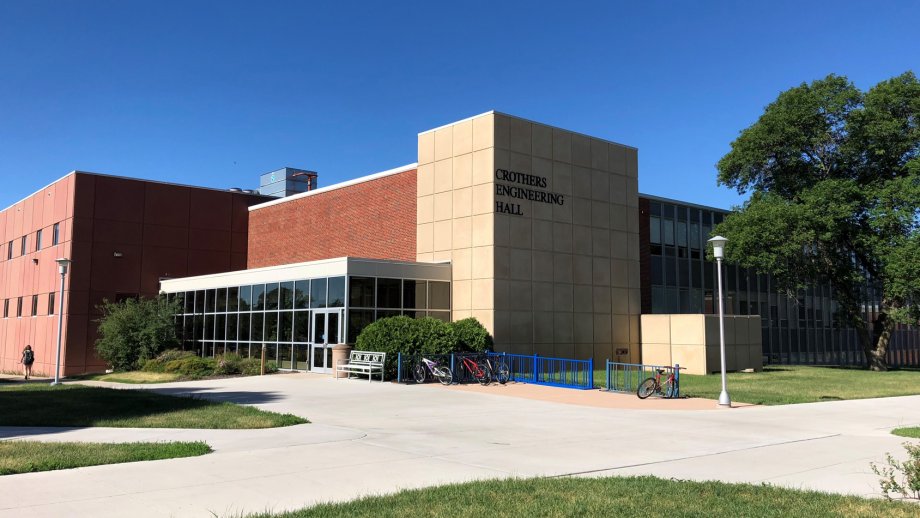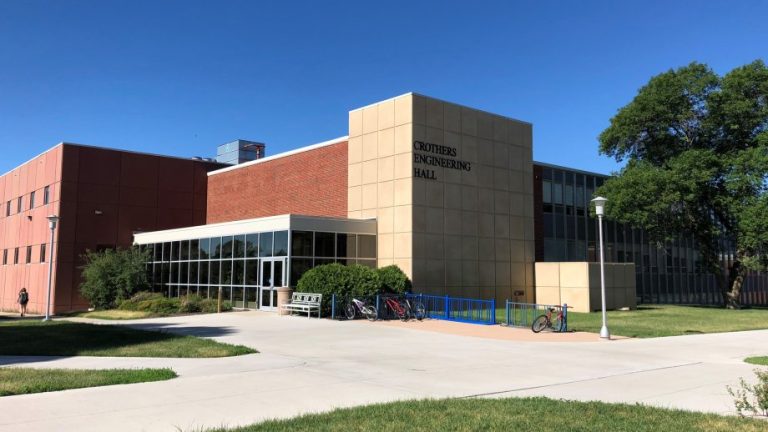
South Dakota State University will offer a Bachelor of Science in Health Systems Engineering degree starting in fall 2025, following approval by the South Dakota Board of Regents on Dec. 12.
Healthcare Systems Engineering is a unique degree, the first in the nation to combine engineering, computer science, data science, and health sciences in one degree, preparing students for new career fields.
Healthcare is the world's largest and fastest growing industry, and is increasingly complex due to technological, economic, social, and regulatory influences. Rapidly emerging technologies such as generative artificial intelligence, computer vision and pattern recognition, and computational modeling in high-resolution anatomical regions will revolutionize the medical industry.
The forward-looking program trains students to incorporate engineering principles and mathematical methods while using cutting-edge tools and technology to connect medical professionals and engineers.
“We are very excited to add the Health Systems Engineering degree to SDSU’s academic portfolio,” said Dennis Hedge, provost and vice president for academic affairs. “Health care systems are complex, and this program, with its focus on rural health systems, supports workforce needs for professionals with the skills and competencies to further advance and optimize health care delivery.”
This degree offers opportunities in healthcare operations, developing new technologies and devices, improving patient care through data-driven decision-making, and implementing efficient systems to streamline processes, among many other career opportunities. , prepares students for employment in various areas of the healthcare industry.
“This is a more futuristic-thinking engineering degree,” said Sanjeev Kumar, dean of the Jerome J. Lohr Institute of Technology. “Graduates of this program are equipped with critical thinking and problem-solving skills and are prepared to not only meet today's industry workforce needs, but also shape the future of the healthcare industry.”
Students are prepared to manage rapidly emerging technologies including artificial intelligence and machine learning, as well as big data, cybersecurity, health informatics, telemedicine, and more.
As part of SDSU's land-grant mission, faculty identified current and future workforce needs and developed this program to prepare students to meet state and local needs and strengthen the long-term economy. did.
“This new program aims to provide students with the skills and knowledge needed to bridge the gap between engineers and medical professionals,” said Yucheng Liu, head of the Department of Mechanical Engineering. I am. “This will enable us to develop and apply cutting-edge technology to address the critical needs of the rapidly growing healthcare industry.”
Students have the option to add one of the following tracks to their general degree within this program: Artificial Intelligence and Data Science, Pre-Medicine, Animal Industry, Devices and Sensors.
The program is offered through the Lohr College of Engineering's Department of Mechanical Engineering in collaboration with SDSU's College of Nursing. Natural Sciences; Pharmacy and Allied Health Professions. Education and Human Sciences. We are affiliated with Dakota State University and research agricultural, food and environmental sciences.

